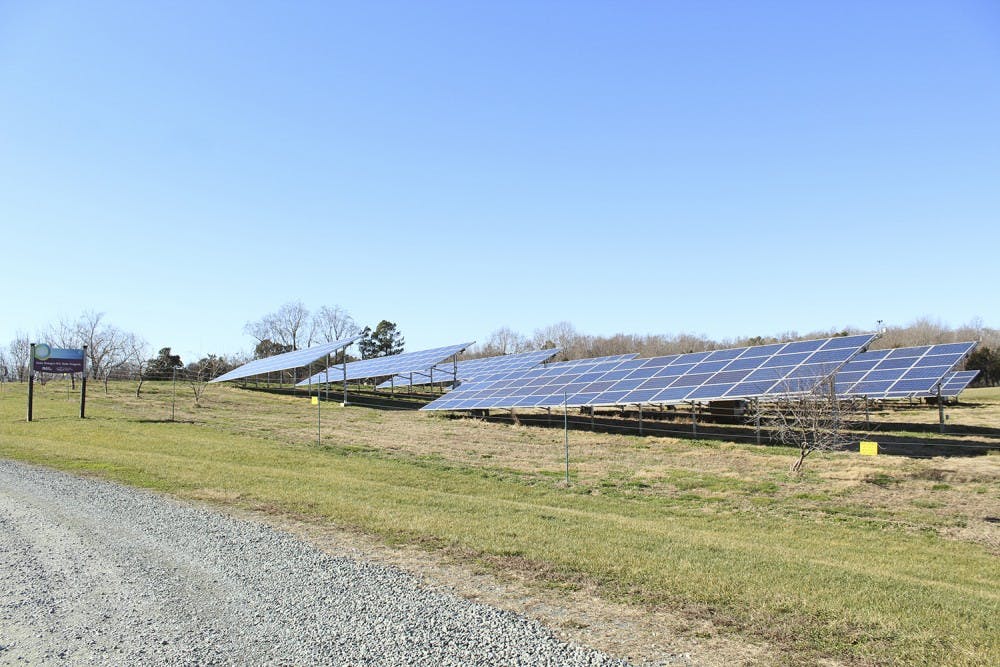Currituck County has issued a ban on all new solar farms after a hearing Feb. 20 because of residents’ agricultural and aesthetic concerns.
The ban has been a subject of debate in the county. In January, the county began a 60-day moratorium on discussions of adding more solar farms, which will end in March.
The county is suspending all applications for new solar farms until it has evaluated arguments from both sides and decided the best course of action, Randall Edwards, spokesperson for Currituck County, said.
The county is already home to two solar farms — one is owned by Duke Energy and another, owned by SunEnergy1, is under construction.
“The board voted to amend the county’s Unified Development Ordinance to remove solar array projects as an allowable use,” Edwards said. “This does not affect the two current ones.”
Currituck County will likely revisit the policy in the future, though an exact date has not been set. Edwards said the policy does not mean Currituck is not taking an anti-solar energy stance.
“The board just wants to take a step back and take a comprehensive look at solar projects and solar farms and make sure we’ve got our policies in the right order,” Edwards said.
The policy enacted makes it more difficult for businesses and residences to tap into the sun’s energy through solar farms, Rachel Weber, campaign organizer at Environment North Carolina, said.
“(The solar farms) certainly do protect our clean air and clean water,” Weber said. “Meanwhile, they provide thousands of local jobs; they increase the reliance on the grid and are really important for economic development in North Carolina, especially in rural areas.”



